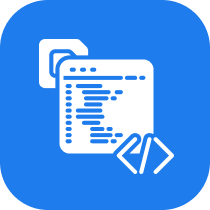At Stack Overflowers, our business model is designed to provide high-quality programming education while maintaining long-term sustainability, accessibility, and value for our learners.
1. Freemium Foundation
We operate on a freemium model, offering free access to foundational content while providing premium, in-depth courses and mentorship services for paid subscribers. This ensures that beginners can start learning without financial barriers, and those who want to dive deeper can invest in their growth.
Free content includes interactive lessons, beginner exercises, community forums, and select workshops. Premium services unlock advanced courses, career tracks, certification, mentor feedback, and exclusive live sessions.
2. Subscription & One-Time Payments
We combine two pricing strategies:
-
Subscription-based plans for mentorship and continuous learning tracks.
-
One-time course purchases for standalone programs like the Full-Stack Developer Bootcamp.
This hybrid approach allows flexibility — learners can choose a plan that fits their pace, goals, and budget.
3. B2C & B2B Revenue Streams
Our primary revenue comes from individual learners (B2C), but we also offer corporate training packages (B2B) for startups and companies looking to upskill their teams. These packages include custom course bundles, onboarding training, and progress tracking tools for HR teams.
4. Community-Driven Growth
We grow through our community-first approach. Referrals, affiliate programs, and community partnerships play a key role in organic growth. Satisfied learners become advocates, creating a self-sustaining loop of engagement and trust.
5. Low Operational Overhead
Thanks to our digital-first infrastructure, our operational costs remain low. Most of our value is delivered via scalable platforms — video content, automated assessments, and chat-based support. This allows us to reinvest more into improving the product and providing top-tier content.
6. Long-Term Vision
Our goal is not just to teach code but to create a career-launching ecosystem. Future expansions include job boards, internship pipelines, and partnerships with tech companies to help our students transition from learning to earning. We’re building a bridge from education to employment.
